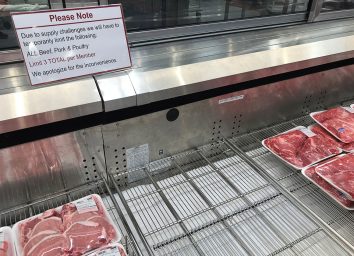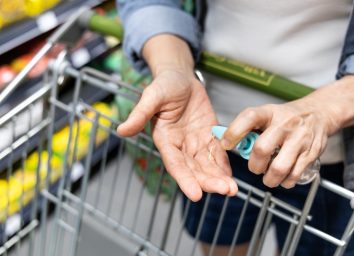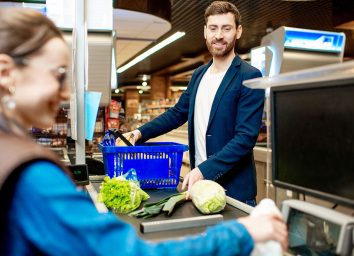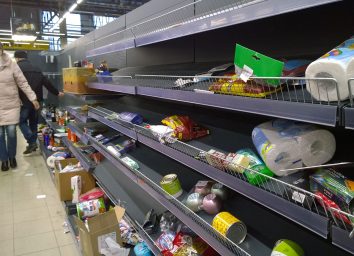The # 1 Worst Thing You Can Do in the Grocery Checkout Line
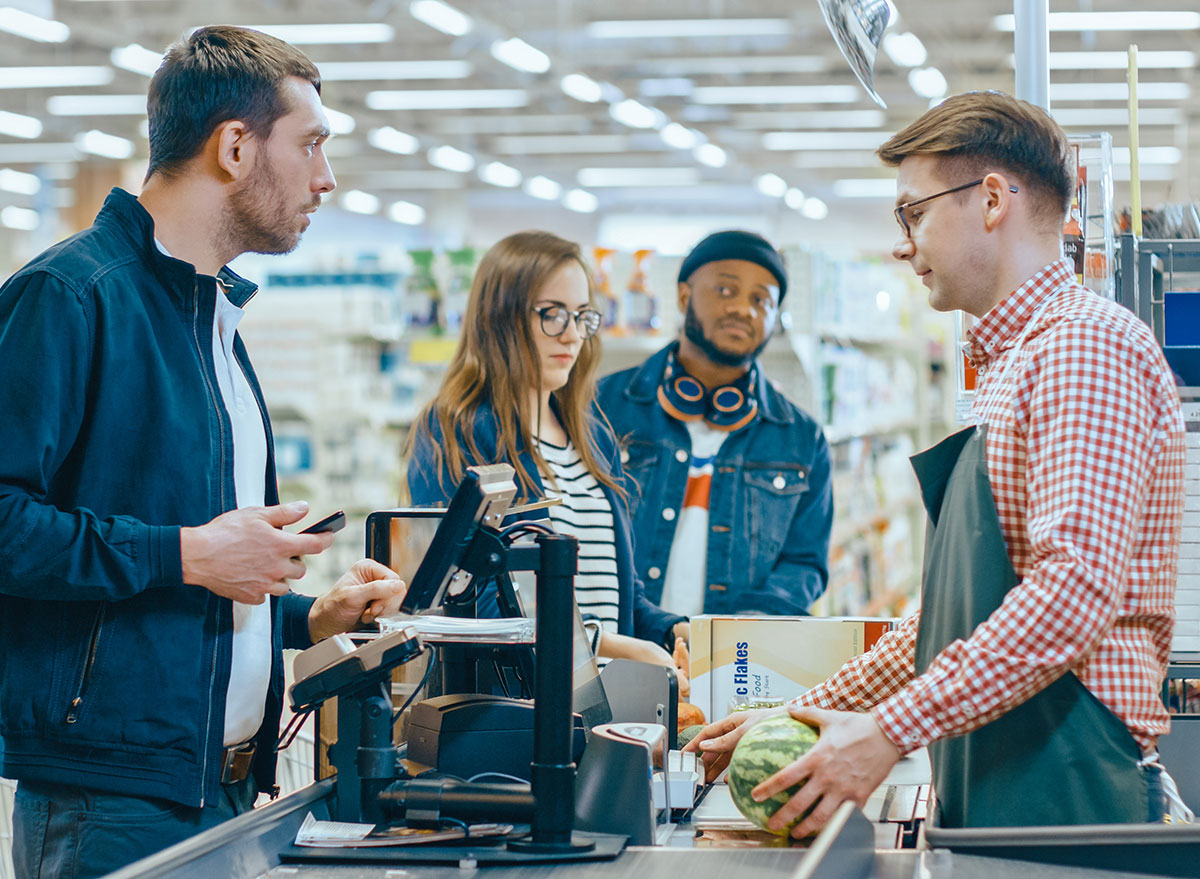
There are many safety precautions you should take before going to the grocery store, but what about when it comes time to payout? What’s the safest way to ensure that you’re not infecting yourself during that transaction?
Dr. William Lang, Medical Director at private concierge medicine practice WorldClinic, says there’s one thing you should never do when you’re in the checkout line at the grocery store and that’s to not touch your face.
“That’s a hard one because people without thinking about it, touch their face somewhere on the order of 30 times an hour without thinking about it,” he says.
When you don’t touch your face, you eliminate the chance of transferring any potential viral particles that could be, without your knowledge, on your hands after handling groceries or touching the keypad on the credit card machine—of which hundreds of other people have touched.
“A positive action would be to use hand sanitizer and make sure you use enough,” says Lang. “Gelled alcohol needs enough time to kill the virus and most people don’t use enough to keep their hands wet with the alcohol long enough.”
This is another reason why it’s so important to wear a mask while at the grocery store because should you touch your nose or mouth by mistake, you’ll have some protective covering to block infectious particles. As of recently, the air has become another point of concern. A new study published in the journal, Nature found the RNA in the aerosols of two hospitals in Wuhan, China. RNA, as Lang describes, is the chemical code that the virus uses to tell your cells to build proteins and make more copies of itself.
He also says that while there is good evidence the RNA of the coronavirus can be detected in the air after someone coughs or sneezes from up to 27 feet away—and for several minutes—the RNA, “by itself, is not infectious, though. It has to be packaged in a capsule that has proteins on it that actually get the cells in your body to let it in.”
Without this capsule, the floating RNA cannot infect you. And even when someone sneezes, the respiratory droplets that get suspended in the aerosols (and then picked up by the wind) aren’t infectious from 27 feet away. They’re only believed to be infectious from a much shorter distance.
“There is no good evidence that viral particles are infectious beyond four to six feet, which is the distance traveled by small droplets when you cough, sneeze, or even talk,” he adds.
Now you know exactly why the CDC recommends you stand six feet apart from other people. Luckily, many grocery stores are encouraging that as you wait in line outside of the store as well as in the checkout line, so the biggest thing you have to be conscious of is touching your face.
“The biggest thing that carries and transmits the virus is your hands,” says Lang. “The more things you have to touch, and the more other people have touched, the higher the chance of touching something that someone with infection has touched.”
In order to contract it, you have to touch an object with the virus still active on it, and then touch your face. Essentially, the best way to protect yourself in the checkout line is by using hand sanitizer immediately after you pay for your groceries—and make sure to avoid making these 10 Mistakes With Hand Sanitizer.
